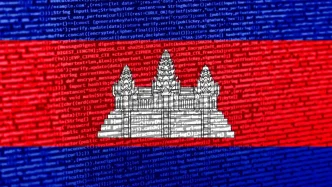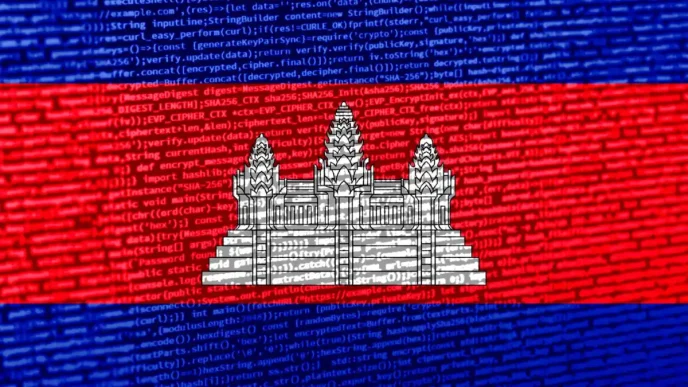Recent actions by Philippine law enforcement against Chinese nationals, including arrests on suspicion of espionage and raids on banned offshore gaming operations, have sparked a sharp response from the Chinese Embassy in Manila. The embassy issued a public advisory warning of “harassments” and an “unstable” social security environment in the Philippines, urging its citizens to take precautions and limit public exposure. This development has heightened diplomatic friction between the two nations, raising questions about the balance between national security and international relations in the region.
Embassy Advisory Sparks Controversy
On April 3, 2025, the Chinese Embassy in Manila released a statement highlighting what it described as increasing security risks for Chinese citizens in the Philippines. The advisory, translated via automated tools, pointed to frequent interrogations and alleged harassment by Philippine authorities, as well as a surge in political rallies and demonstrations. “In recent times, the social security in the Philippines has been unstable” the statement read, advising Chinese nationals to minimize outings, avoid crowds, and “beware of falling into security traps and snares.”
While the embassy did not reference specific incidents, the timing of the advisory aligns with a series of high-profile operations by Philippine law enforcement. Among these is the arrest of Deng Yuanqing, a 39-year-old Chinese national, in January 2025, on allegations of spying on military installations. The embassy has publicly defended Deng, echoing denials from his family and casting doubt on the charges. If confirmed, such allegations could carry significant implications for bilateral relations, though no conclusive evidence has been made public at this stage.
Crackdown on Pogos and Foreign Nationals
Parallel to the espionage concerns, Philippine authorities have intensified efforts to enforce a ban on Philippine Offshore Gaming Operators (Pogos), instituted by the Marcos administration in 2024 due to their alleged links to online scams, human trafficking, and money laundering. Recent raids, including one in Parañaque that resulted in the arrest of 453 individuals—many of them Chinese nationals—have underscored the scale of the crackdown. These operations, often conducted jointly by police and military units, have drawn international attention, particularly as they disproportionately involve foreign workers who remained in the sector despite the ban.
The Department of Tourism notes that China ranks as the sixth-largest source of foreign tourists in the Philippines, a statistic that adds complexity to the ongoing enforcement actions. The Chinese Embassy’s advisory explicitly cautioned potential travelers to conduct thorough risk assessments before visiting the country, signaling a potential chilling effect on tourism and people-to-people exchanges.
Philippine Government Responds
In response to the embassy’s claims, Malacañang press officer Claire Castro emphasized that the Philippines does not target any specific nationality for harassment. “We can assure China that we are not targeting any particular nationality or a particular national to harass” she stated during a Palace briefing. Castro clarified that enforcement actions, including those related to the Pogo ban, are driven by legal imperatives rather than bias. “We should remember that everyone is welcome here, except of course those who are committing crimes—then we will implement the law against you” she added.
Castro suggested that the embassy’s concerns may stem from the high visibility of Chinese nationals in Pogo-related arrests, a point that underscores the intersection of domestic policy and international perceptions. While the Philippine government maintains that its actions are rooted in upholding the law, the framing of these operations as potential “harassment” by the Chinese Embassy highlights a growing rift in narratives between the two sides.
Broader Implications for Bilateral Ties
The current tensions are not isolated incidents but part of a broader pattern of friction between the Philippines and China, often centered on security and territorial disputes in the South China Sea. The arrest of individuals on espionage charges, if substantiated, could further strain diplomatic relations, particularly given China’s vocal defense of its citizens. At the same time, the Philippine government’s focus on dismantling illegal gaming operations reflects a domestic priority that may clash with Beijing’s protective stance toward its nationals abroad.
Analysts suggest that the advisory from the Chinese Embassy serves a dual purpose: a genuine warning to its citizens and a diplomatic signal to Manila. By publicly framing the situation as a security concern, Beijing may be seeking to pressure the Philippines to moderate its enforcement actions or provide clearer justifications for the arrests. However, without specific evidence or dialogue on individual cases, such as that of Deng Yuanqing, mutual mistrust is likely to persist.
The economic dimensions of this issue cannot be overlooked. The Pogo industry, before its ban, contributed significantly to local economies through real estate and ancillary services, even as it drew criticism for its alleged criminal underpinnings. With hundreds of arrests and the closure of numerous facilities, the economic fallout continues to ripple through communities that once hosted these operations. Meanwhile, the potential decline in Chinese tourism—prompted by the embassy’s cautionary stance—could impact a sector still recovering from global disruptions.
Public Sentiment and Regional Context
Public reactions in the Philippines to the embassy’s advisory are mixed. Some citizens and commentators view the statement as an overreach, arguing that the government has a sovereign right to enforce its laws, particularly in cases involving national security or organized crime. Others express concern that the rhetoric could escalate into broader anti-Chinese sentiment, a risk given historical undercurrents of distrust in parts of Philippine society.
Regionally, the situation reflects a wider trend of scrutiny over Chinese nationals’ involvement in offshore gaming and related industries across Southeast Asia. Countries like Cambodia and Thailand have faced similar challenges, balancing economic ties with China against domestic pressures to curb illegal activities. For the Philippines, navigating this terrain is particularly complex given its strategic position and ongoing maritime disputes with Beijing.
The lack of specificity in the Chinese Embassy’s advisory—failing to cite particular cases or evidence of harassment—has also drawn criticism. Without concrete examples, the statement risks being perceived as a generalized critique of Philippine governance, potentially undermining constructive dialogue. If tensions are to be de-escalated, both sides may need to engage in transparent discussions about the nature of the arrests and the broader enforcement of the Pogo ban.
Looking Ahead
As the Philippines continues to grapple with the fallout of the Pogo ban and allegations of espionage, the response from China suggests that bilateral relations will remain under strain in the near term. The challenge for Manila lies in maintaining its commitment to national security and legal enforcement without alienating a key regional partner. For Beijing, the priority appears to be safeguarding its citizens’ interests, even as it navigates the diplomatic tightrope of addressing domestic policies in a foreign state.
Questions linger about how these developments will shape future interactions, from tourism flows to high-level talks on contentious issues. With both sides standing firm on their respective positions, the path forward may depend on whether dialogue can bridge the gap between enforcement actions and international perceptions. For now, the arrests and advisories serve as a stark reminder of the delicate balance at play in Philippines-China relations.














